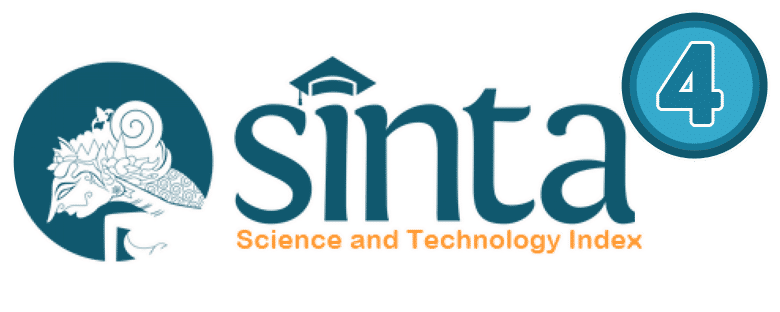Efforts to Improve Students' Self Esteem Through Group Guidance Services with the Problem Based Learning Method
DOI:
https://doi.org/10.24114/icp.v5i2.65951Keywords:
Self-Esteem, Counseling Group Guidance, Problem Based Learning, Junior High School StudentAbstract
This study aims to improve the self-esteem of class VIII-2 students of SMP Negeri 5 Percut Sei Tuan through group guidance services with the Problem Based Learning (PBL) method. This type of research is Guidance and Counseling Action Research (PTBK) which is conducted in two cycles, each with two meetings. The subjects of the study were five students who had low self-esteem based on the results of the questionnaire. The results showed that there was an increase in the average self-esteem score from 61% (pre-test) to 67% (post-test I) and 80% (post-test II). This increase reflects the effectiveness of group guidance services with the PBL method in improving students' self-esteem. Thus, this service is recommended to be widely applied in guidance and counseling in schools.References
Al-Obaydi, L. H. (2021). Efl College Students’ Self-Esteem and Its Correlation To Their Attitudes Towards Inclusive Education. Journal of Educational Sciences, Theory and Practice, 16(1), 27–34. https://doi.org/10.46763/jespt211610027ao
Astuti, R. H. Y., Suhendri, S., & Indraswati, V. (2024). Upaya Meningkatkan Kepercayaan Diri Siswa Kelas IX H Melalui Bimbingan Klasikal Model Problem Based Learning Di SMP Negeri 1 Semarang. Educatio, 19(1), 200–209. https://doi.org/10.29408/edc.v19i1.25807
Fanisa, N., & Muryono, S. (2023). Perbedaan Tingkat Self Esteem Antara Siswa Jurusan IPA dan IPS Di MA Mu’allimien Muhammadiyah Kabupaten Bogor. Jurnal EDUCATIO: Jurnal Pendidikan Indonesia, 9(1), 463. https://doi.org/10.29210/1202323019
Frentika, D., & Rizki, H. T. N. (2020). Upaya Meningkatkan Self-Esteem melalui Mathematics Problem Based Learning di Sekolah. Prosiding Seminar Nasional, 87–96. http://e-journallppmunsa.ac.id/index.php/ippemas2020/article/view/140
Halawa, A. (2020). Self-Esteem Remaja Putri Yang Mengalami Overweight Di Smp Dharma Wanita Surabaya. Jurnal Keperawatan, 9(1), 24–32. https://doi.org/10.47560/kep.v9i1.214
Hermuttaqiena, B. P. F., Arasa, L., & Lestaria, S. I. (2023). Penerapan Model Pembelajaran Problem Based Learning Untuk Meningkatkan Hasil Belajar Siswa. Kognisi :Jurnal Penelitian Pendidikan Sekolah Dasar, 3(1), 16–22. https://doi.org/10.59562/progresif.v2i2.30313
Hotimah, H. (2020). Penerapan Metode Pembelajaran Problem Based Learning Dalam Meningkatkan Kemampuan Bercerita Pada Siswa Sekolah Dasar. Jurnal Edukasi, 7(3), 5. https://doi.org/10.19184/jukasi.v7i3.21599
Ilhamuddin, M. F., Suyanto, K. D., Santoso, O., & Fitriani, D. N. (2024). Tahapan Bimbingan Kelompok: Landasan Teoritis dan Praktis dalam Fasilitasi Pengembangan Individu dan Kelompok. Edukatif : Jurnal Ilmu Pendidikan, 6(1), 107–115. https://doi.org/10.31004/edukatif.v6i1.5967
Ita Zahara, C., Lubis, L., Aziz, A., Prasarana, S. B. (2020). Hubungan Persepsi Siswa terhadap Konselor dan Sarana Prasarana Bimbingan Konseling dengan Minat Layanan Konseling The Relationship of Student Perception to Counselor and Infrastructure Facilities of Counseling Guidance with Interest of Counseling Guidance. Tabularasa: Jurnal Ilmiah Magister Psikologi, 1(2), 116–123.
Mas’ud, M. A., & Slamet, S. (2024). Peran Orang Tua dalam Meningkatkan Self-Esteem pada Anak Usia Sekolah. MUNAQASYAH : Jurnal Ilmu Pendidikan dan Pembelajaran, 6(2), 98–108. https://doi.org/10.58472/munaqosyah.v6i2.186
Nadila, E., Mahmudi, I., & Maria, R. Y. (2024). Peningkatan Self Esteem melalui Bimbingan Kelompok Teknik Problem Solving Discussion pada Siswa Kelas VIII D SMPN 2 Madiun. Seminar Nasional Sosial Sains, Pendidikan, Humaniora (SENASSDRA), 3(3), 331–338. http://prosiding.unipma.ac.id/index.php/SENASSDRA
Nelisma, Y., Ardiyani, D., Sabela, A., & Desy, M. (2024). Dasar Strategi Layanan Bimbingan dan Konseling di Sekolah. INOVATIVE : Journal Of Soial Science Research, 4(3), 6319–6330.
Pridana, B. W. (2014). Pengaruh Model Problem-Based Learning Dan Problem-Solving Skills Terhadap Peningkatan Self- Esteem Siswa Kelas VIII Universitas Pendidikan Indonesia | repository.upi.edu | perpustakaan.upi.edu. 2013, 38–57.
Putri, J. E., Suhaili, N., Marjohan, M., Ifdil, I., & Afdal, A. (2022). Konsep self esteem pada wanita dewasa awal yang mengalami perceraian. Jurnal EDUCATIO: Jurnal Pendidikan Indonesia, 8(1), 20. https://doi.org/10.29210/1202221495
Refnadi, R. (2018). Konsep self-esteem serta implikasinya pada siswa. Jurnal EDUCATIO: Jurnal Pendidikan Indonesia, 4(1), 16. https://doi.org/10.29210/120182133
Rismi, R., Yusuf, M., & Firman, F. (2022). Bimbingan kelompok untuk mengembangkan pemahaman nilai budaya siswa. Journal of Counseling, Education and Society, 3(1), 17. https://doi.org/10.29210/08jces149300
Rosani, W., Fatimah, S., & Supriatna, E. (2021). Studi Deskriptif Self Esteem Pada Siswa Kelas XI Sman 1 Margaasih. FOKUS (Kajian Bimbingan & Konseling dalam Pendidikan), 4(5), 330. https://doi.org/10.22460/fokus.v4i5.8074
Wardhani, R. C., Handaka, I. B., Setyowati, A., & Utomo, B. N. (2022). Upaya Meningkatkan Self-Esteem Siswa Melalui Konseling Kelompok menggunakan Solution Focused Brief Counseling. Jurnal Pendidikan Tambusai, 6(2), 13404–13412.
Zamzanah, Rasimin, & Yusra, A. (2023). Upaya Meningkatkan Self-Esteem (Harga Diri) pada Siswa melalui Layanan Bimbingan Kelompok di SMP N 19 Kota Jambi. Jurnal Pendidikan Tambusai, 7(1), 2178–2184.
Downloads
Published
How to Cite
Issue
Section
License
Copyright (c) 2025 Masdalifah Harahap

This work is licensed under a Creative Commons Attribution-ShareAlike 4.0 International License.
Authors who publish with this journal agree to the following terms:
- Authors retain copyright and grant the journal right of first publication with the work simultaneously licensed under a Creative Commons Attribution License that allows others to share the work with an acknowledgement of the work's authorship and initial publication in this journal.
- Authors are able to enter into separate, additional contractual arrangements for the non-exclusive distribution of the journal's published version of the work (e.g., post it to an institutional repository or publish it in a book), with an acknowledgement of its initial publication in this journal.
- Authors are permitted and encouraged to post their work online (e.g., in institutional repositories or on their website) prior to and during the submission process, as it can lead to productive exchanges, as well as earlier and greater citation of published work.







